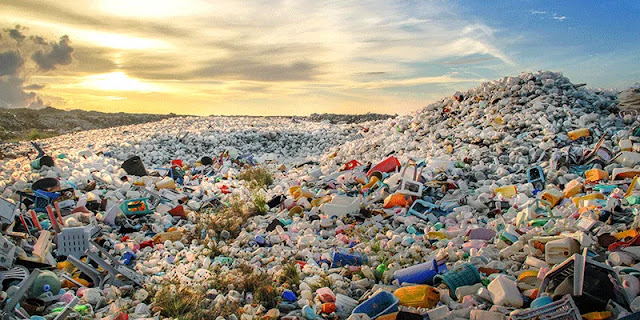The world has just celebrated World Environment Day on 5 June. World Environment Day has now become a platform to raise awareness of solving various environmental problems in the world, one of which is plastic waste. However, can the world live without plastic?
Plastic is attached to human life, including in the household sector. Plastic bags are often a place to put shopping items to food containers and disposable tableware made of plastic. When disposed of, all this pollutes the environment because it takes a long time to decompose.
It is estimated that there are 500 million to 1 billion plastic bags used by the world's population in one year. That means about 1 million plastic bags are used every minute, which requires 12 million barrels of oil per year and 14 million trees to be cut down to make it. So that plastic is difficult to decompose, it takes at least 100 to 500 years for plastic to decompose completely.
However, that does not mean that there is nothing positive about plastic packaging innovation. Plastic packaging can create a new business model, namely by recycling it back into handicrafts or from used bottled drinks into household needs. But unfortunately, not all plastic waste can be managed properly and effectively.
Professor Anthony Ryan, a professor of physical chemistry at the University of Sheffield, said it was not plastic that was the problem, but how people chose to deal with plastic. “Plastic isn't bad. What people do with plastic is bad," he said.
Then Can The World Live Without Plastic?
Has this question ever crossed your mind? The answer is of course you can, my friend. Although in this case it does not mean getting rid of the existence of plastic completely from human life. And all we can do is control how it is used.
Why so? The reason is that if we want to get rid of plastic, we must also look for a replacement that is as light, durable and comfortable as plastic. Plant-based plastics, or bioplastics made from corn or sugarcane starch, is one solution.
In addition, plastic has also become the foundation of many industrial sectors. Currently, the packaging industry is by far the largest user of pure plastics. But plastic is also used in the manufacturing sector, building infrastructure, agriculture and even the health sector.
Living with Zero Waste Lifestyle
One way to make it happen is to adopt a lifestyle that is more environmentally friendly and minimal waste or what is commonly called the Zero Waste Lifestyle.
This lifestyle is a daily practice of avoiding single-use plastic packaging, sorting waste, and utilizing organic waste into compost. In addition, the zero waste lifestyle also encourages us to be more responsible with what we consume and what we throw away. All the products we consume and use, whether it's food, plastic straws, or fast fashion clothes, all run the risk of becoming trash that will fill the earth.
For the zero waste lifestyle, we can do 5 easy things or also known as the 5R refuse, reduce, reuse, recycle and rot method.
Start refusing to use plastic equipment. You can change the tableware and drinking utensils to the containers from bamboo, stainless steel, environmentally friendly materials. Bring your own tumblr or water bottle and bring a shopping bag/tote bag from home.
In addition, if there are still plastic items at home, don't throw them away but reuse them. For example, plastic drinking bottles as containers for plants to recycling plastic waste into creative objects such as home decorations.

